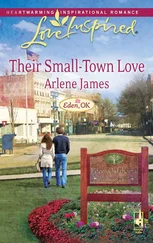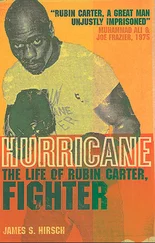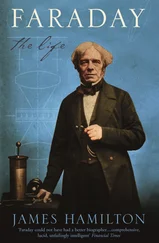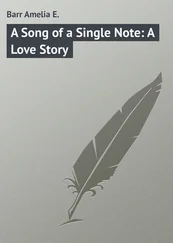Viola makes a small basket out of grass while they’re sitting on the bench and hands it to the judge.
“Where did you learn to do that?”
“I’ve just always known.”
“It’s lovely.”
“Thank you,” Viola says. She makes another. “When I close my eyes and think about the last several months, I picture a whirlpool, or a tornado. A ring of violence circling and circling around nothing. Continually drawling everything towards that emptiness in the center.”
“I see,” the judge says.
“I wanted to be a nun when I was younger, have I told you that?” Viola says. “Or a saint.”
“I didn’t realize you were Catholic.”
“I’m not.”
The judge examines the basket, holding it gently up to the light.
“Maybe secretly you thought I was sad,” Viola says, as they’re walking back to their cars. “But you didn’t want to tell me, because you saw how serious I’d gotten. You didn’t want to ruin our good time.”
“You’re a charming young woman,” the judge says, as they’re standing by her car.
“I can’t tell if you’re being serious.”
“I’m absolutely being serious.”
“I thought you were,” Viola says. “But you can see why it was important for me to make sure. I had a good day.” The judge gives her a peck on the cheek.
“I’m glad we didn’t have sex that time, when I took you to your room,” Viola says. The judge looks at her, dejected. She tries to explain about how she likes him better as a father figure, and he says that he understands, but she’s pretty sure he doesn’t. “It was a compliment,” Viola says.
“I understand,” the judge says. He kisses her check again, but it’s not the same.
Viola gets in her car and says to herself, stupid stupid stupid stupid stupid stupid stupid stupid stupid stupid stupid stupid stupid stupid stupid stupid stupid stupid stupid stupid stupid stupid stupid stupid stupid stupid stupid stupid stupid stupid stupid stupid stupid stupid stupid. She watches the judge walk back to his car in her rearview mirror. He is still holding the tiny grass basket. She thinks, why do I always have to explain myself about everything? Why can’t I just let something be? Viola thinks, I should get out of my car and go after him. She thinks, anything I do now would make him feel worse. She thinks, if I were him, wouldn’t I want me just to disappear right now, so I’d never have to think about me again?
Viola disappears.There is a Viola-shaped hole in reality, where Viola used to be. The Viola-shaped hole in reality sits with the FBI agent in the motel room and watches videos that he has taken in which he pretends to interrogate her. Except, she thinks, I haven’t seen this video before. That’s not even me. The image quality is bad: horizontal white lines wash up and down the screen like waves. Is it possible that we are watching an actual interrogation? Is there a market for interrogations, passed back and forth between members of the intelligence community, the government, police forces, amateur enthusiasts, connoisseurs? It is not the content of the interrogation that is important, she thinks, but the form… If you hurt someone enough, scare them enough, they will say whatever you want them to. It is a way of turning someone else’s body into a kind of puppet. Content becomes meaningless: you may as well be talking to yourself. But the form, the ritual… A tornado, a whirlpool, violence swirling around emptiness. Love, too: a kind of violence, drawing everything into the emptiness at its center… Eye, she thinks. That’s the term for it, the center of a tornado, that kernel of nothing. The eye.
“I want you to tell me exactly what I am allowed to do,” the FBI agent says. She is lying still mostly-dressed in bed, with the FBI agent looming over her.
“What do you want to do?” she asks.
“I want you to tell me.”
“Do you want to slap me?”
The FBI agent slaps her.
“Do you want to spit on me?”
The FBI agent spits on her.
When I was younger, she thinks, I wanted to live a life that was not just for myself. I wanted to do something large, something important, something pure and full of grace. When did life become such a small thing? When did I become an animal that mostly reacts? Oh yes, I loved men before Robert, and I was hurt by them, and I found Robert and decided that he would not hurt me. This is how life becomes small: you grow up, which is to say, you get hurt, and then you adjust your life in ways in which you hope you will no longer get hurt. But of course you get hurt again, and what difference does it make, who’s responsible?
“I feel so bad, so much of the time,” the FBI agent says. She rubs her hand through his hair.
“It’s okay,” she says, shushing him. “It’s okay.”
Somewhere, I am being watched, she thinks. On other screens. Images of me, scattered throughout the nation. She considers the FBI agent. This is not his fault, she thinks. Or not entirely. I was in the process of becoming a certain type of image — fitting a certain role — long before. Can I say that it is Robert’s fault? No, not entirely — I had as much to do with it as anyone—
Robert, who was once her husband, which is to say, who was once married to an image of her, calls, over and over again, on her cell phone. She can never quite convince herself to answer it.
Hugo takes Robertto the guinea-pigger camp, which lies on the far western edge of the city. They take the bus from downtown, because Hugo is concerned that Robert’s newish, expensive-looking car might attract suspicion. “What kind of suspicion?” Robert wants to know.
“They might think that we are with the mafia.”
Beyond the complex’s gates, rows of bright orange roll-up doors stretch off into the distance. Small fires are everywhere. Guinea-piggers look up at Robert, sweating, shaking, their eyes glazed over, many of them not seeing him as he walks past, or, if they do see him, not knowing whether he is an hallucination. Others don’t even bother to look up, but continue feeding their fires with pieces of junk mail or gathered sticks. Huge flakes of ash float through the air like terrifying moths.
“This is horrible,” Robert says.
“This is the underside of the world,” Hugo proclaims, voice suddenly taking on dramatic-movie tones. “This is — oh, hi kids.”
A group of a half-dozen kids runs by, throwing pieces of rubble at each other. One of them throws a piece of rubble at Robert, which hits him, hard, in the shoulder.
“Hey!” Hugo says. “Don’t throw rubble at Robert. Robert doesn’t even know how to play the rubble game.”
Robert rubs his shoulder. “Did those kids have horns?”
“Horns?” Hugo asks. “Oh. The bony protrusions. Yes, certain of the younger children here have bony protrusions. It was a statistically insignificant birth defect resulting from a previous phase I drug trial that their parents participated in.”
“That seemed like a lot of kids with horns that just ran by.”
Hugo shrugs. “Statistics,” he says.
Hugo brings Robert to Jeremy, the leader of the guinea-piggers. Jeremy is a thin, haunted-looking man, with dark circles under his eyes and a sharp face. He’s the only other person in the storage facility that Robert has seen wearing a suit, though Jeremy’s is in bad shape, shabby and worn through in places, with a noticeable stain near the left breast. His office is in a double-wide storage unit filled with stacks and stacks of papers. “I’m sure that Hugo has told you what I expect in return,” Jeremy says.
Robert hands over the organizational chart for Obadiah Birch Pharmaceuticals. “I’m risking my neck on this,” Robert says. “If it came out that I did something that went against a client’s interests—”
Читать дальше
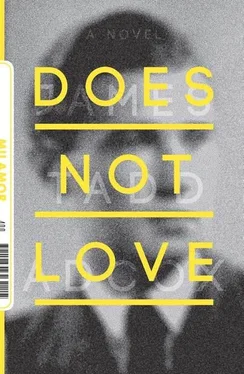

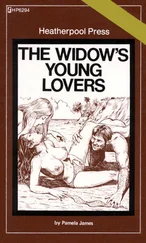
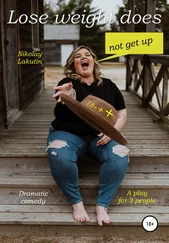
![Jakob Wassermann - Issue Does Not Exist],errors:{](/books/585068/jakob-wassermann-issue-does-not-exist-errors-thumb.webp)

